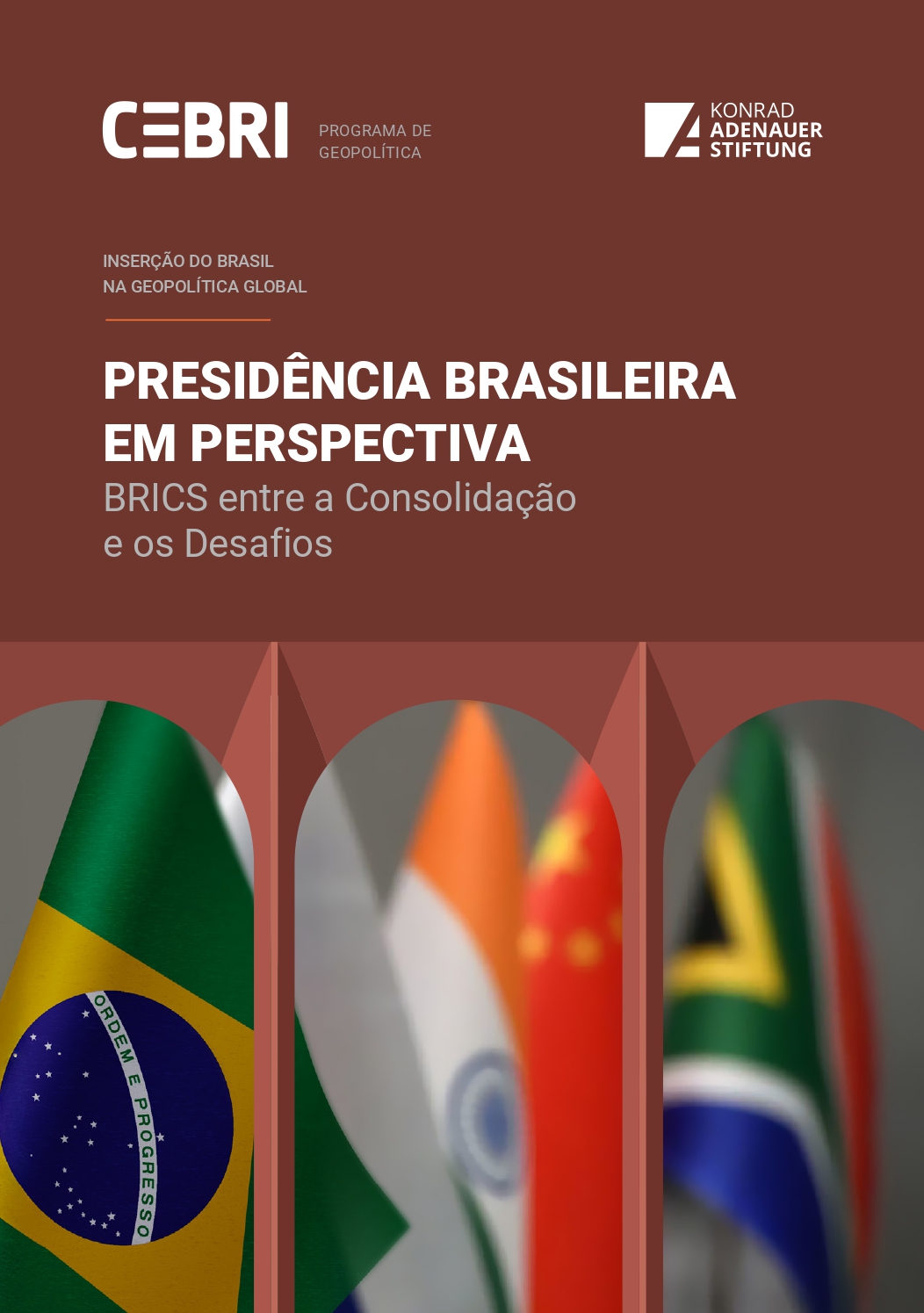Policy Papers
Brazilian Presidency in Perspective: BRICS between Consolidation and Challenges
- 28 august 2025
Starting in 2024, the BRICS assumed a new configuration with the accession of Saudi Arabia, Egypt, the United Arab Emirates, Ethiopia, Indonesia, and Iran—forming the so-called Expanded BRICS. This enlargement generated renewed geopolitical momentum, particularly among emerging economies, while simultaneously posing significant coordination challenges given the diversity of economic models, political systems, and diplomatic priorities among its members.
In the context of Brazil’s presidency in 2025, the country chose to highlight global health as a priority. This decision resonates with the internationally recognized role of Fiocruz and Brazil’s longstanding record of technical cooperation in the field, especially within the framework of South–South cooperation. Nevertheless, the choice contrasted with expectations for progress on agendas with broader systemic impact, such as reform of the global financial architecture and de-dollarization.
The Brazilian presidency reflected an effort to reposition the country internationally as a global convener and promoter of cooperative solutions to development challenges. The proposal of the “Partnership for the Elimination of Socially Determined and Neglected Tropical Diseases” represented a pragmatic agenda anchored in concrete experiences, such as the Brasil Saudável program. Despite the relevance and originality of the initiative, the absence of more structural advances on strategic issues is subject to criticism regarding the actual reach of the presidency.
This policy paper analyzes the pathways and limitations of Brazil’s presidency in the context of the Expanded BRICS and puts forward constructive directions for deepening dialogue with Europe, particularly in areas such as health, infrastructure, and the digital and energy transitions.
The analysis also examines the group’s institutional challenges, the dilemmas arising from its enlargement, and the tensions between the discourse of a “new multilateralism” and the actual practices of the BRICS.
Organized by: Brazilian Center for International Relations (CEBRI) and The Konrad Adenauer Foundation (KAS)
Starting in 2024, the BRICS assumed a new configuration with the accession of Saudi Arabia, Egypt, the United Arab Emirates, Ethiopia, Indonesia, and Iran—forming the so-called Expanded BRICS. This enlargement generated renewed geopolitical momentum, particularly among emerging economies, while simultaneously posing significant coordination challenges given the diversity of economic models, political systems, and diplomatic priorities among its members.
In the context of Brazil’s presidency in 2025, the country chose to highlight global health as a priority. This decision resonates with the internationally recognized role of Fiocruz and Brazil’s longstanding record of technical cooperation in the field, especially within the framework of South–South cooperation. Nevertheless, the choice contrasted with expectations for progress on agendas with broader systemic impact, such as reform of the global financial architecture and de-dollarization.
The Brazilian presidency reflected an effort to reposition the country internationally as a global convener and promoter of cooperative solutions to development challenges. The proposal of the “Partnership for the Elimination of Socially Determined and Neglected Tropical Diseases” represented a pragmatic agenda anchored in concrete experiences, such as the Brasil Saudável program. Despite the relevance and originality of the initiative, the absence of more structural advances on strategic issues is subject to criticism regarding the actual reach of the presidency.
This policy paper analyzes the pathways and limitations of Brazil’s presidency in the context of the Expanded BRICS and puts forward constructive directions for deepening dialogue with Europe, particularly in areas such as health, infrastructure, and the digital and energy transitions.
The analysis also examines the group’s institutional challenges, the dilemmas arising from its enlargement, and the tensions between the discourse of a “new multilateralism” and the actual practices of the BRICS.
Organized by: Brazilian Center for International Relations (CEBRI) and The Konrad Adenauer Foundation (KAS)


.png)
